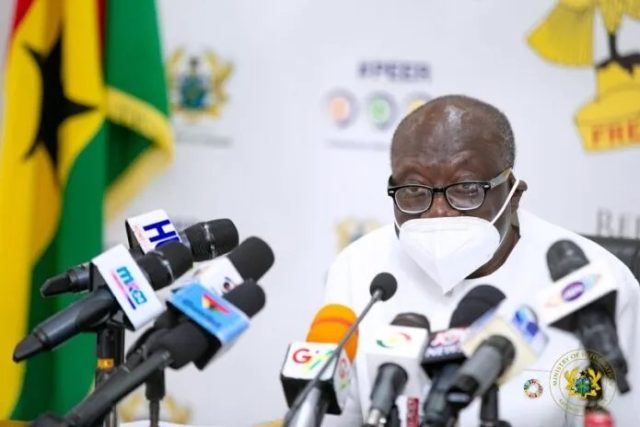The Minister of Finance, Ken Ofori-Atta, has assured pensioners forming part of the individual bondholders that their participation in the Domestic Debt Exchange Programme (DDEP) is voluntary.
The senior citizens had since Monday, February 6 congregated at the Ministry of Finance in Accra to express their displeasure at what they described as being strong-armed into accepting participation in the Programme – insisting on their preference being total exemption.
The protests by retirees reached a crescendo last Friday, February 10 – when former Chief Justice, Sophia Akuffo, joined the camp to show solidarity with her contemporaries. She noted that the Programme as presented by the finance ministry falls flat on moral and legal tests.
Subsequently, in a meeting with leadership of the Pensioners Bondholder Forum, another opposing group – which was convened by a former Director-General of the Securities and Exchange Commission (SEC), Dr. Adu Anane Antwi – Mr. Ofori-Atta reiterated that participating in the exchange remains voluntary, hence the call for exemption is not entirely accurate.
He however encouraged the bond holders to consider their position, especially as terms offered by the Exchange are particularly favourable for holders of instruments with long maturity dates.
The Programme’s most recently revised terms offer persons above the age of 60 a coupon rate of 15 percent, down from an average of 18.5 percent for bonds with five-year maturity periods. Furthermore, people under the age of 59 are being offered a 10 percent coupon rate.
At an earlier meeting with the group on Monday – when the protest commenced – Mr. Ofori-Atta explained that in spite of the rate cut, the deal was a third of the 450-member strong Forum that holds bonds with maturities exceeding 12 years.
He added that the new terms are beneficial for both retirees and the nation, explaining that failure to swiftly resolve the pending issues could derail securing a board level clearance from the International Monetary Fund (IMF).
“The challenge we have is that we need to, by the middle or end of March, have concluded with our IMF programme; and this – the debt exchange – is an important part of that process. The cost of our disagreement over 3.5 percent may be that we will not get an IMF clearance; and then the issues of inflation and capacity to pay take on a different hue,” the finance minister explained.
The pensioners have however insisted that they prefer the old terms, and intend to hold their respective instruments to maturity – negating the need to trade existing bonds.
They argue that without their involvement, government will still attain the minimum participation rate of 80 percent.


















